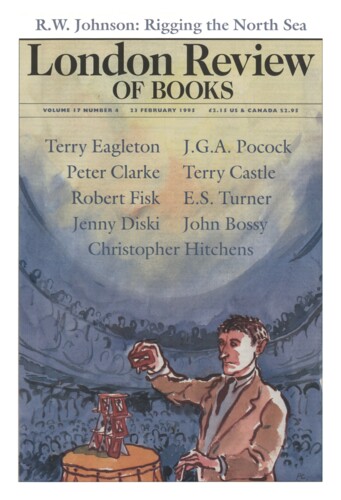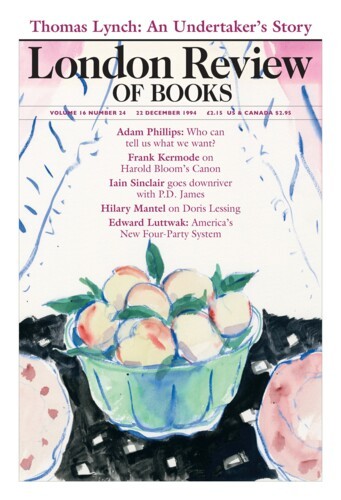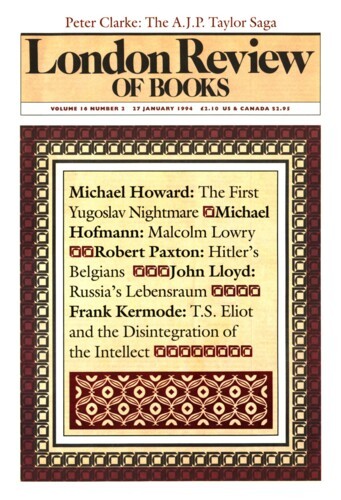Why Do the Tories Always Have the Luck?
Peter Clarke, 23 February 1995
The Left has often looked to history for reassurance. It has sought to buttress its implicit faith in progress, of which history supposedly offered some kind of guarantee through simple extrapolation of trends. Even when historical experience queried straightline theories of progress as naive blueprints of perfectibility, the sophisticated left-wing alternative was often a squiggly-line theory of progress. When Hegel talked about the cunning of reason, when Darwin dwelt on the countless false trails in the tortuous path of natural selection, they were unwittingly providing concepts so elastic that they could stretch to a thousand short-term excuses. Setbacks were thus reinterpreted as temporary aberrations or explained away in hindsight as necessary detours. The Left has thus been comforted through many a season of adversity by a perversely indomitable sense that, in the long run, history was on its side – and numbers too, as part of the same inexorable process. Shelley’s seminal contribution to political statistics – ‘Ye are many, they are few’ – was another heartening reassurance that the forces of reaction and privilege, though still going strong as late as the 19th century, were ultimately doomed.’





